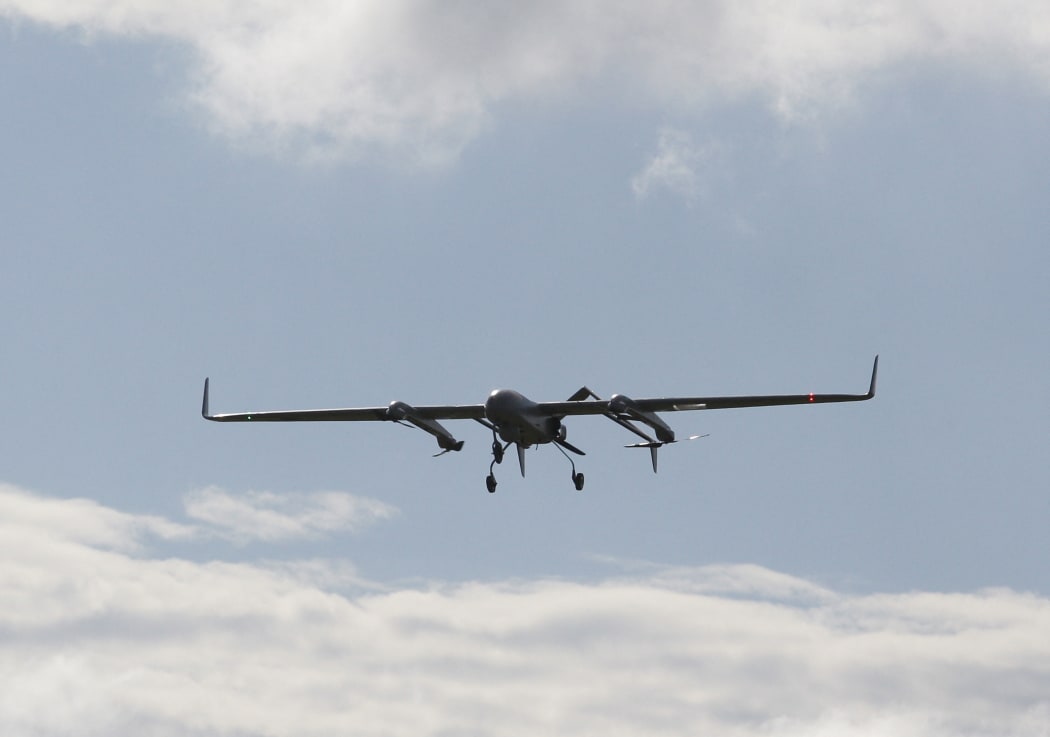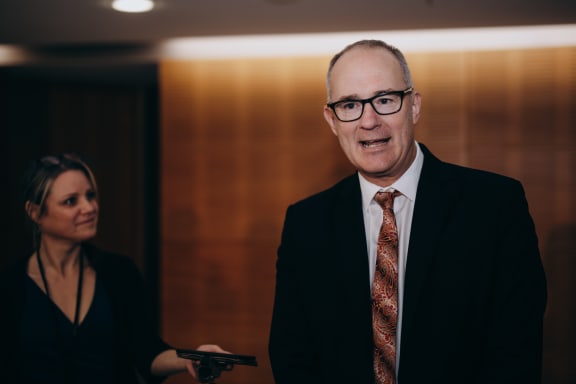The government wants to help with international efforts to develop a treaty banning the use of killer robots which it says are an abhorrent prospect.

An unmanned aerial vehicle during military exercises at a training ground not far from the city of Rivne, in Ukraine, in May 2021. Photo: 2021 Anadolu Agency
Killer robots, which are formally known as autonomous weapons systems (AWS), once activated have the capability to select and kill people without further human intervention.

Phil Twyford Photo: RNZ /Dom Thomas
Minister of Disarmament and Arms Control Phil Twyford announced today that New Zealand will push for new international laws to ban and regulate their use.
"While the evidence suggests fully autonomous weapons systems are not yet being deployed on the battlefield, the prospect of a future where the decision to take a human life is delegated to machines is abhorrent and inconsistent with New Zealand's interests and values," Twyford said.
"This is an issue with significant implications for global peace and security, and I'm optimistic New Zealand, alongside the international community, is well placed to push for action."
The use of artificial intelligence and emerging technologies in new weapons systems raises legal, ethical and security risks if left unchecked, Twyford said.
The government's concerns were shared by the UN Secretary-General, the International Committee of the Red Cross, as well as other tech experts, ethicists and military personnel, he said.
"Our policy shows it is possible to address these risks while remaining consistent with our defence and security interests, including maintaining interoperability with key defence partners, and ensuring our tech sector remains able to pursue the opportunities the peaceful development of AI [Artificial Intelligence] presents."
Twyford believes New Zealand is well placed to make the case for a new convention or treaty, including at multilateral talks underway at the United Nations in Geneva.
"This policy also makes clear, however, that New Zealand will remain open to other opportunities to make progress, including by building and working with a coalition of states, experts and others."
The government consulted with the Defence Force and other non-governmental bodies before finalising its policy.
Talks on the issue are due to resume in Geneva next month.





